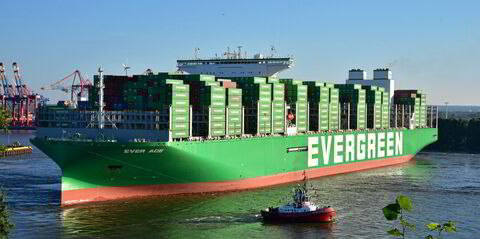Trafigura is expecting shipping congestion to continue to be a positive factor for bulker markets for some time yet.
The shipowner and trader’s head of dry freight shipping, Alan Cumming, writes in the annual report that demand for cargo movement improved in the second half of its financial year ending 30 September.
Freight rates followed suit on the back of strong iron ore shipments globally, robust coal exports from Indonesia and a bumper soybean crop in Brazil.
“The severe drought in Panama led to unusually long delays for dry freight vessels transiting the Panama Canal, which forced ships to sail alternate routes, thereby increasing vessel demand,” he said.
“The Panama Canal is one of the world’s most important trade routes and we expect it to remain a potential disruptive factor to the market in the next 12 months, with congestion being a constant issue.”
The market had actually witnessed more normal trading conditions as the year began, with disruptions that had unsettled the industry since the global pandemic easing and commodities beginning to move with greater efficiency around the globe.
In spite of the less volatile backdrop, Trafigura’s dry freight team continued to record strong results, with work to build a broader customer base across both internal and third-party charterers and shipowners paying dividends.
Volumes were flat year on year, while fixtures were slightly down on 2022.
The Baltic Dry Index, widely regarded as a key barometer of the industry’s health, dropped sharply in the six months to March as the unwinding of pandemic‑related congestion and inefficiency meant a higher availability of ships and a steep imbalance between bulker supply and cargo movement demand, Cumming said.
“In addition, the container market eased significantly through this period and a number of cargoes which had been moving in bulk carriers at the height of the pandemic moved back to containers. The result was less cargo moving on bulk vessels,” he added.
Trafigura’s metals, minerals and bulk commodities desks had a “strong” year, the group said, generating operating profit before depreciation and amortisation of $1.6bn, down from $1.9bn the year before.




